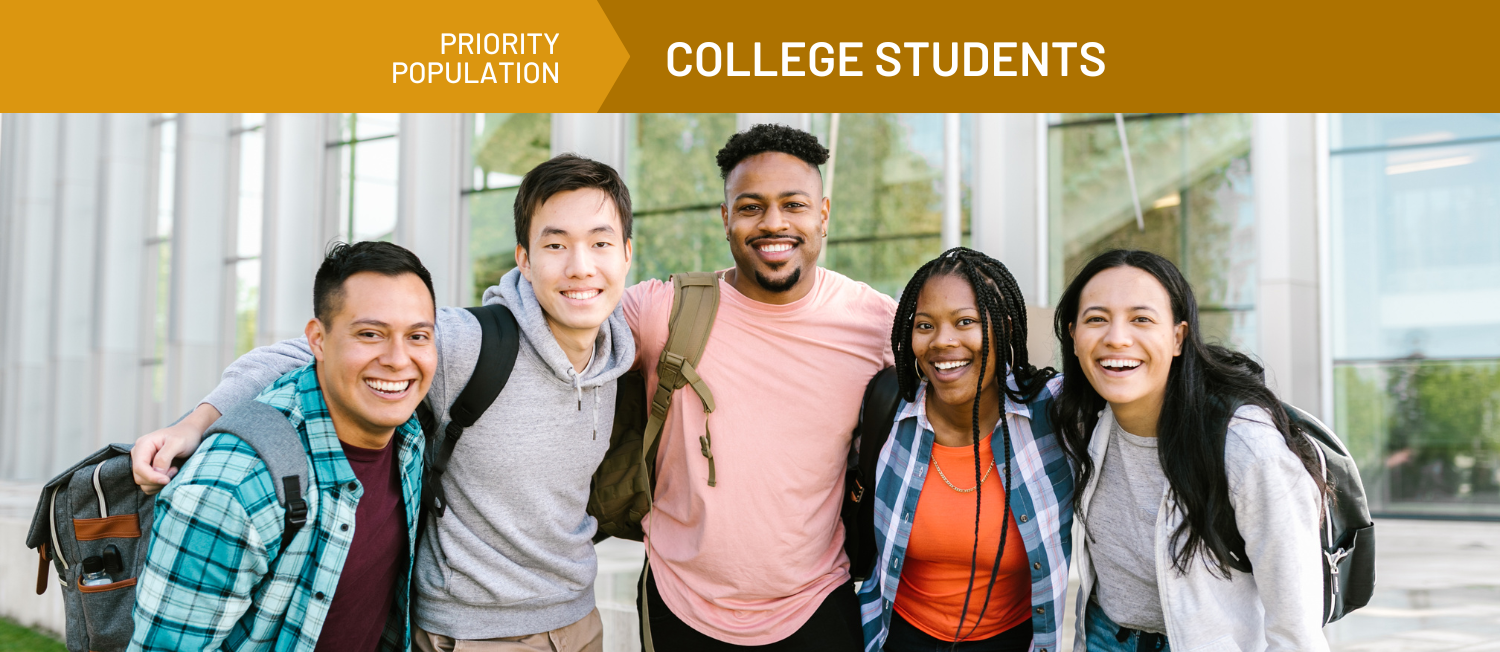Using Dialogue to Grow Campus Well-Being
Photo by Caleb Minear on Unsplash
The tumult of the COVID-19 pandemic has impacted young people in ways we do not yet know or understand. However, we can confidently agree there have been changes in our communities that have forced us to reevaluate how we define community and how we can create community in the face of loneliness, othering, and the unknown.

Seven young people recently sat down with us to discuss social and emotional wellbeing as part of a process to update the Campus Wellbeing Guide. The first version of this guide was released in March of 2020, just as the seriousness of the pandemic began to wash over the United States. In this updated version, we want to center belonging and community building. These practices are antidotes to isolation.
When we find ourselves feeling lonely and isolated, it is critical to ground ourselves in times where we felt included and appreciated. Through dialogue, we can imagine a future together where all people are thriving, and we all play a role in building a community that is genuinely welcoming and comfortable. These were our guiding thoughts in creating an updated and fuller dialogue guide that will accompany an updated Campus Wellbeing Guide.

As part of the update, multiple dialogue guides for different audiences were designed to facilitate face-to-face conversations about successes, struggles, and visions of more equitable tomorrows. Utilizing the youth dialogue guide to speak with graduates of the University of Kansas (KU) and current Colorado School of Public Health (CSPH) students, participants felt appreciative for the “focus on the common ground” and saw the session as a time to “try to make connections.” The updated dialogue guides go deeper to elicit personal stories and feelings from stakeholders. Below is an example of a prompt intended to center participants.
When we talk about renewing our social, emotional and spiritual life, we are really talking about our mental health. Our mental health is tied to what we think about ourselves, how we connect with our family and friends, and if we feel like we belong. It is about our thoughts, feelings, and memories along with culture, early life experiences, where we live, our faith, and other factors.
Mental Health and renewal of our social, emotional, and spiritual selves is critical because how we feel about ourselves and our connection to our schools, jobs, or communities--influences our decisions and actions. This conversation guide is designed to help you consider your personal experiences with belonging, how you can support others, and what kind of impact that can have on a community.
Members from both the KU and CSPH groups shared similarities, but there were undeniable experiences and identities that set them apart. Interestingly, what connected them all was a desire to feel a greater sense of community and a curiosity for how to create that. The KU conversation developed on larger social issues like racism, practices of suburban isolation, superficiality in community conversations, and the need to create and sustain a sense of belonging. The CSPH group honed in on the absence of belonging, and how in those moments, they often feel alone in feeling alone. Physical isolation and quarantine throughout the COVID-19 pandemic exacerbated this feeling. As public health students, it was also disheartening to see people in the general public violate physical boundary requests while they themselves had to sacrifice physically coming together for the health and safety of the greater good.

Ultimately, both groups valued the time they spent together discussing lived experiences and hopes for the future. We all left inspired to think more deeply about creating communities in which everyone feels a sense of belonging. As we adapt to life with COVID-19, we are becoming more open to nontraditional communications and relationships that bring us that life-sustaining feeling of being heard, cared for, appreciated, and understood. We hope campus stewards will utilize the guides to bridge community conversations and build spaces where belonging and wellness are prioritized.
Written by:
Nellie Kassebaum, MPHc. Nellie is a second year MPH Health Communications student at the Colorado School of Public Health. She is completing an internship with Community Commons.
Balancing Safety and Support on Campus: A Guide for Campus Teams
Resource - Guide/handbook
Brought to you by JED
Higher Education as Catalysts: Building a Culture of Health on Campus and in Communities
Resource - Report
Brought to you by RWJF
A Guide to Campus Mental Health Action Planning
Resource - Guide/handbook
Brought to you by Education Development Center Inc.
Related Topics





 Campus Well-Being" with a photo of two Black college students walking and talking." style="margin: 0 auto;">
Campus Well-Being" with a photo of two Black college students walking and talking." style="margin: 0 auto;">


